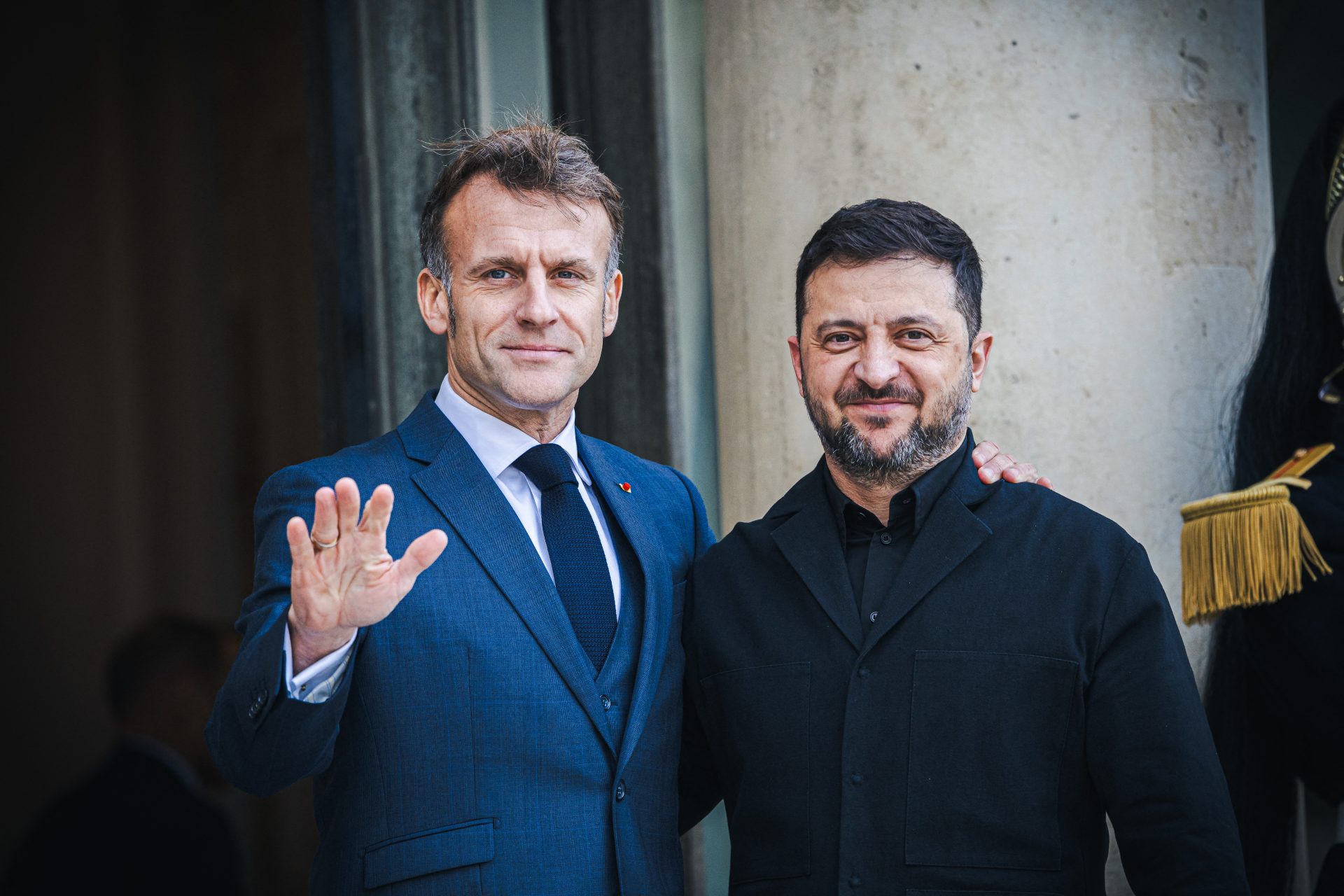The response from Dmitri Medvedev followed a familiar script: rigid posture, muddled message. Losing none of his characteristic bombast, the former president of Russia appealed to the “people of France” to have their say regarding their “dimwit” leader’s sale of up to 100 Rafale fighter jets to Ukraine.
There was no absence of hyperbole from the Ukrainian side either. After meeting President Macron in Paris on Monday to sign the deal, President Volodymyr Zelensky hailed the defence package as a “historic” accord that will offer “the greatest air defence, one of the greatest in the world”. For his part, French President Emmanuel Macron praised the agreement as “huge” and “what is needed for the regeneration of the Ukrainian military”. But closer examination reveals that the deal may not warrant the attention it is receiving.
For one thing, the Élysée admitted that it is only a political commitment in a letter of intent, with a purchase deal set to follow later. It does not bode well for Ukraine’s short-term security that it takes at least three years to train a Rafale pilot. The planes, each of which is estimated to cost $100 million, would be sent over the next decade, offering Ukraine no respite from ongoing Russian land advances and waves of strikes on civilians, not to mention the punishing winter to come.
That is if the deliveries even get made at all. Macron has declined to furnish a timeline for the first one and can’t see the deal through to completion himself, given that his mandate ends in 2027. Indeed, there is no end to the obstacles standing in the way of this project. The decision to frame their support for Ukraine within a decade-long plan seems driven less by a desire to lay the foundations for Kyiv’s long-term security and more by their own need to delay military spending commitments amid tight defence budgets.
There was no confirmation as to how this would be funded, either. This deal appears to hinge on the not-yet operational SAFE scheme or the hypothetical use of frozen Russian assets, the latter option being favoured by Zelensky. It’s a nice idea, but an illegal one that has divided Europe so deeply that Brussels won’t sign up to it. Ironically, Macron has himself opposed the proposal on the grounds that it would breach international law.
Yet on Monday he was unconvincingly insisting that a legally permissible path could be found — subject to a long list of conditions. As for why he’s changed his view, it is likely no coincidence that Paris is pushing for “European preference” so that Moscow’s money would support the continental defence industry — including French arms manufacturers — at a time when allies are buying US-made weapons for Ukraine through the PURL scheme.
Given the scale of the challenges, why is there such uproar? Perhaps because the deal constituted a rare piece of good news for both the French and Ukrainian leaders. For Zelensky, the trip to Paris offered not just a brief break from the corruption scandal ensnaring several of his closest allies, but also a chance to demonstrate that he was out securing tangible wins for his country. And after a shaky period in terms of his domestic stability, Macron was presumably delighted to spend a few moments basking in the spotlight on the international stage, playing the role of statesman.
Never one to miss an opportunity for theatrics, Medvedev blew the plane sale out of proportion in a bid for attention. A decade-long, unfunded promise hardly warrants such fanfare. Yet, as Zelensky and Macron join forces to project their alliance and sidestep their domestic woes, Medvedev is far from alone in using this deal for grandstanding.











Join the discussion
Join like minded readers that support our journalism by becoming a paid subscriber
To join the discussion in the comments, become a paid subscriber.
Join like minded readers that support our journalism, read unlimited articles and enjoy other subscriber-only benefits.
Subscribe